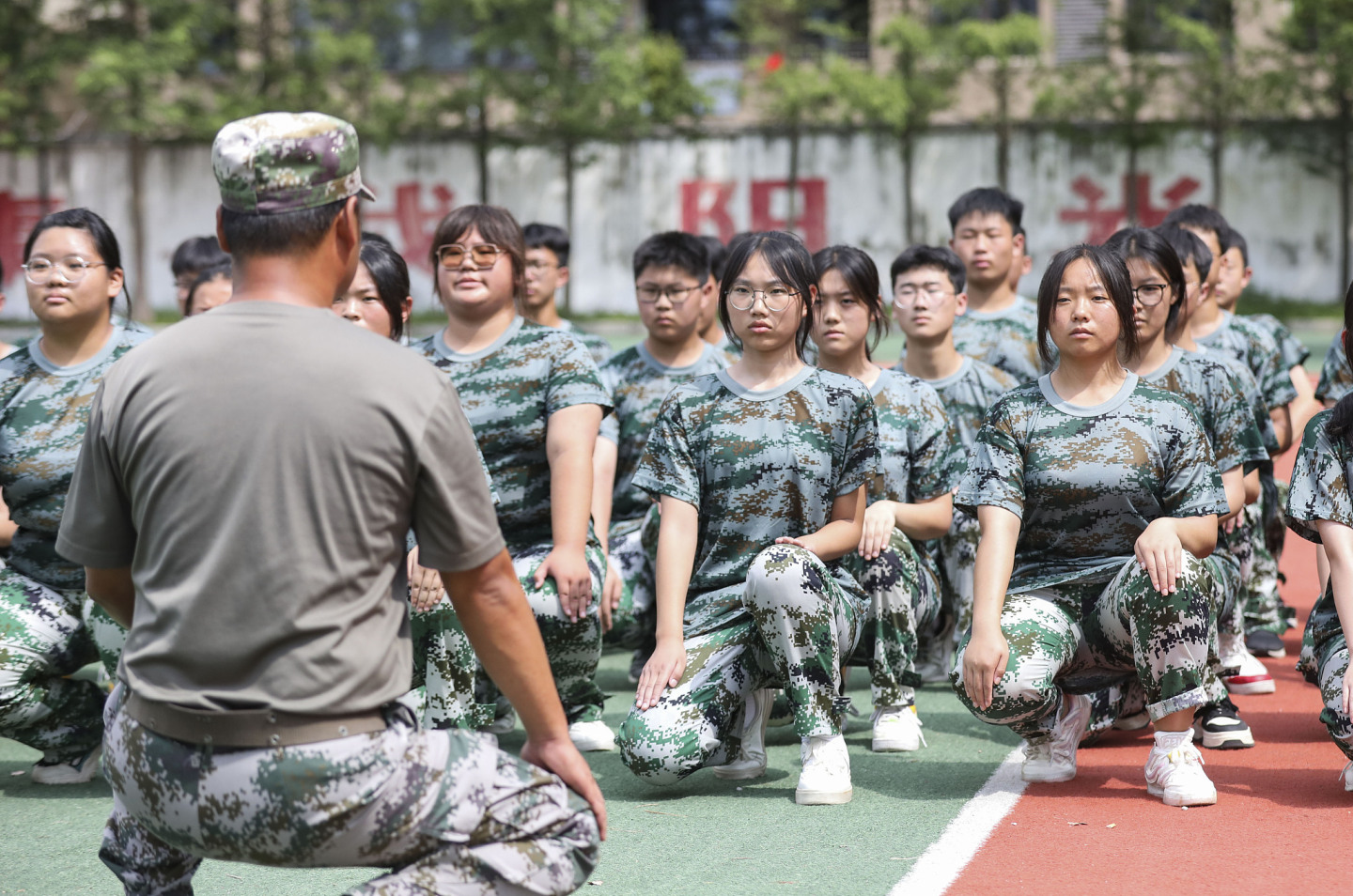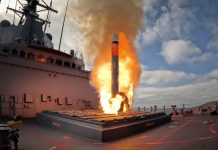In a significant development aimed at enhancing military training for civilians in China, the nation is advancing legislation that mandates fundamental military training for high school and college students.
According to reports, the National People’s Congress Standing Committee, China’s upper house of parliament, will meet through September 13 to discuss a draft amendment to the National Defense Education Law. Having undergone its first reading in April, the law will likely be passed by the end of the year.
This action aligns with Chinese President Xi Jinping’s ongoing efforts to promote the inclusion of national security in the educational curriculum. The amendment to the draft calls for Chinese schools to expand their national defense curriculum to improve students’ comprehension of military service.
A draft published by Chinese state media reads: “National defense education in schools should be combined with teaching military service knowledge to enhance the student’s awareness of military service in accordance with the law and create a good atmosphere in which military service is considered honorable.” The report further quoted that, “The draft also improves provisions about the launching of education and training for reservists.”
Under the suggested changes, both local military authorities and national educational authorities would be required to oversee marching and marksmanship drills at high schools and universities. Local governments would fund the costs of these activities.
The draft stipulates that education departments under the State Council and relevant elements of the Central Military Commission, China’s highest military decision-making body, would collaborate to write student manuals on military training. Universities that disobey the law risk criminal prosecution.

According to the report, the NPC Standing Committee deemed the adjustments necessary because China needs to bolster national defense education in light of recent changes on the “home and international fronts.”
In September, to raise public awareness about defense education, the Communist Party’s publicity department plans to screen documentaries, open military installations to the public, and require military training in schools. The Education Ministry also released a university-level national security textbook in August.
These moves come amid concerns that the escalating tensions in the Taiwan Strait and the South China Sea could spiral into a full-blown military confrontation with the United States.
According to some critics of the Chinese government, Xi’s increasing emphasis on military training for civilians is a sign of increased nationalism in advance of a possible invasion of Taiwan.
China Is Broadening The Scope Of Military Training
China has two types of military duty: mandatory and voluntary, with the latter becoming the main category as of 2021.
According to the Military Service Law, all citizens, regardless of their race, ethnicity, occupation, place of origin, religion, or educational attainment, are required to serve in the armed forces. The present National Defence Education Law mandates that senior high schools and colleges provide military training to their students.
The Law on National Defense Education was first passed in 2001 and updated in 2018, along with other laws, as part of a package of changes.
The earlier iteration of the legislation served primarily as a guideline; however, the suggested amendments assert that fundamental military training ought to be offered to high school students and individuals enrolled in higher education institutions during their academic tenure. As per the modifications, junior high school pupils are now permitted to do military training.
These adjustments are intended to raise “national defense awareness” throughout society and facilitate the second-largest economy in the world’s adjustment to “many new domestic and international changes.” Reports, though, do not describe what that would involve.
The draft amendment follows a series of other national security initiatives from Beijing in the previous 12 months. These include the country’s Patriotic Education statute, which was amended and entered into effect in January, a wide-ranging public campaign to combat foreign spies, and the enactment of adjustments to an anti-espionage statute last year.

NPC Chairman Zhao Leji listed the revision of the National Defence Education Law as one of the year’s main legislative priorities, with the intention of “modernizing China’s system and capacity for national security.”
Analysts suggest that the heightened emphasis on national security awareness could encourage a greater number of young Chinese individuals to join the military, potentially intensifying existing nationalist sentiments and fostering animosity or bias against foreign entities.
Zhi Zhenfeng, research fellow at the Institute of Law at the Chinese Academy of Social Sciences, told the Global Times in April that the country was revising the law in response to the changing national security landscape of the new era.
Zhi clarified that while the current legal framework has been crucial in regulating and ensuring that all citizens receive national defense education, over time, it has become apparent that some of the law’s provisions have not been updated to reflect changing circumstances. He noted that it has to be updated to better fit the new framework, handle new issues, and offer a “stronger legal foundation for advancing national defense education in the new era. “
- Contact the author at sakshi.tiwari9555 (at) gmail.com
- Follow EurAsian Times on Google News




